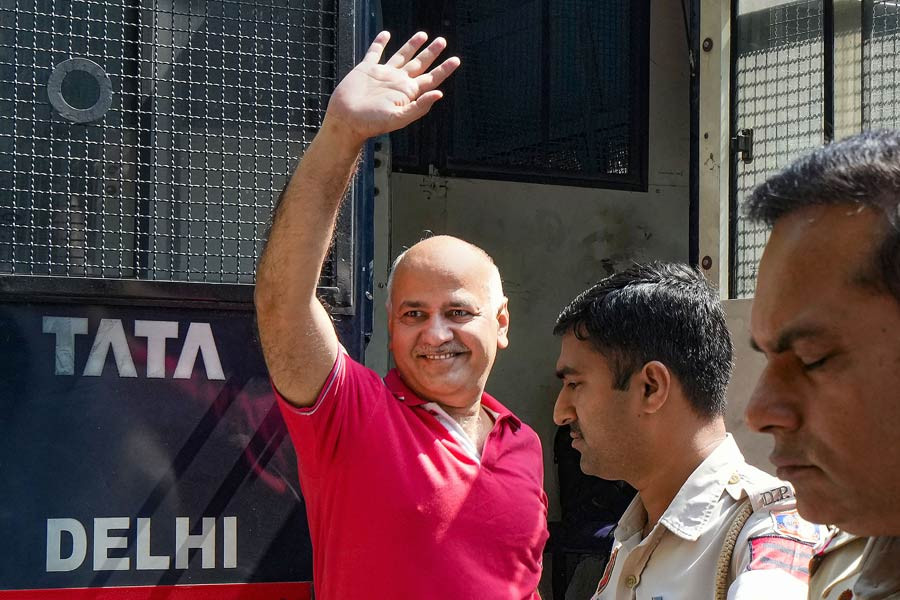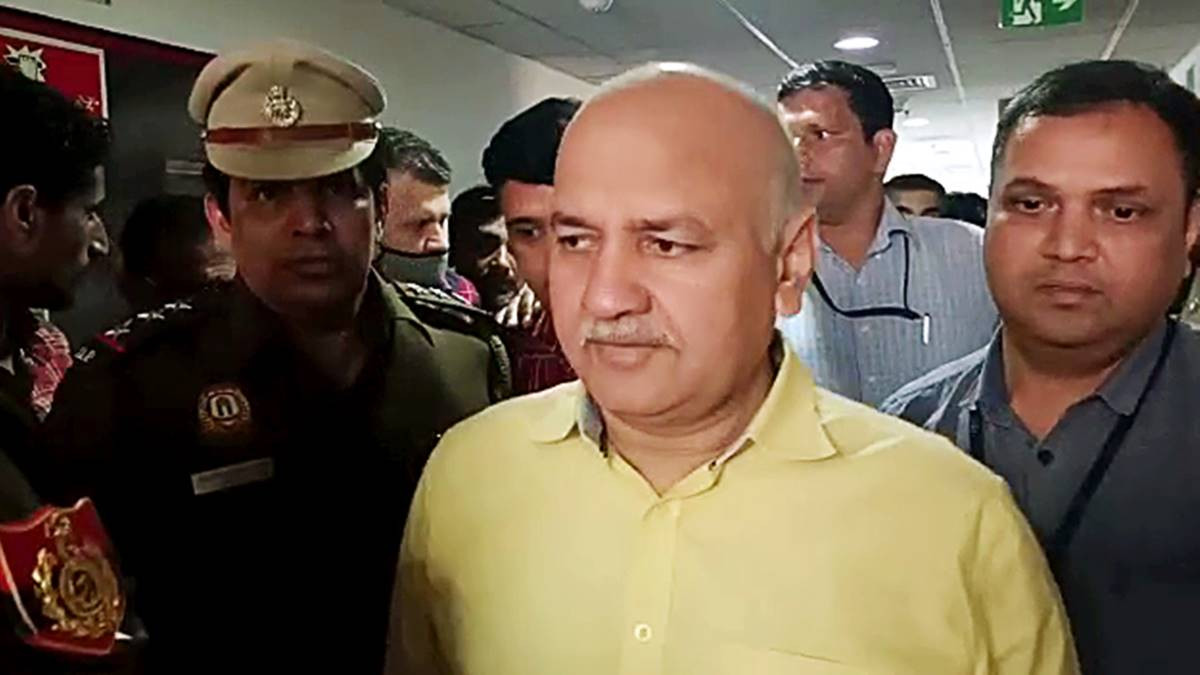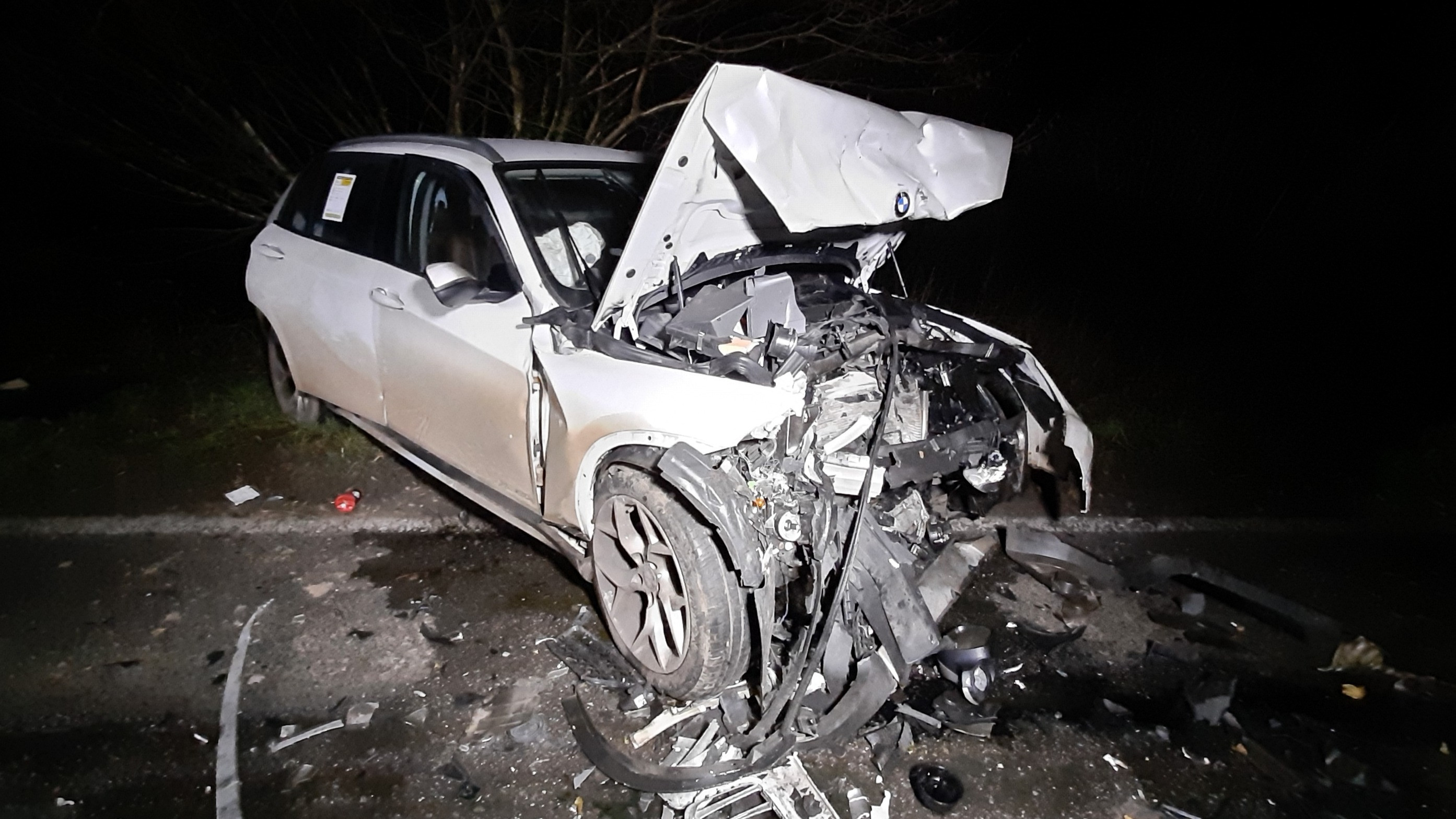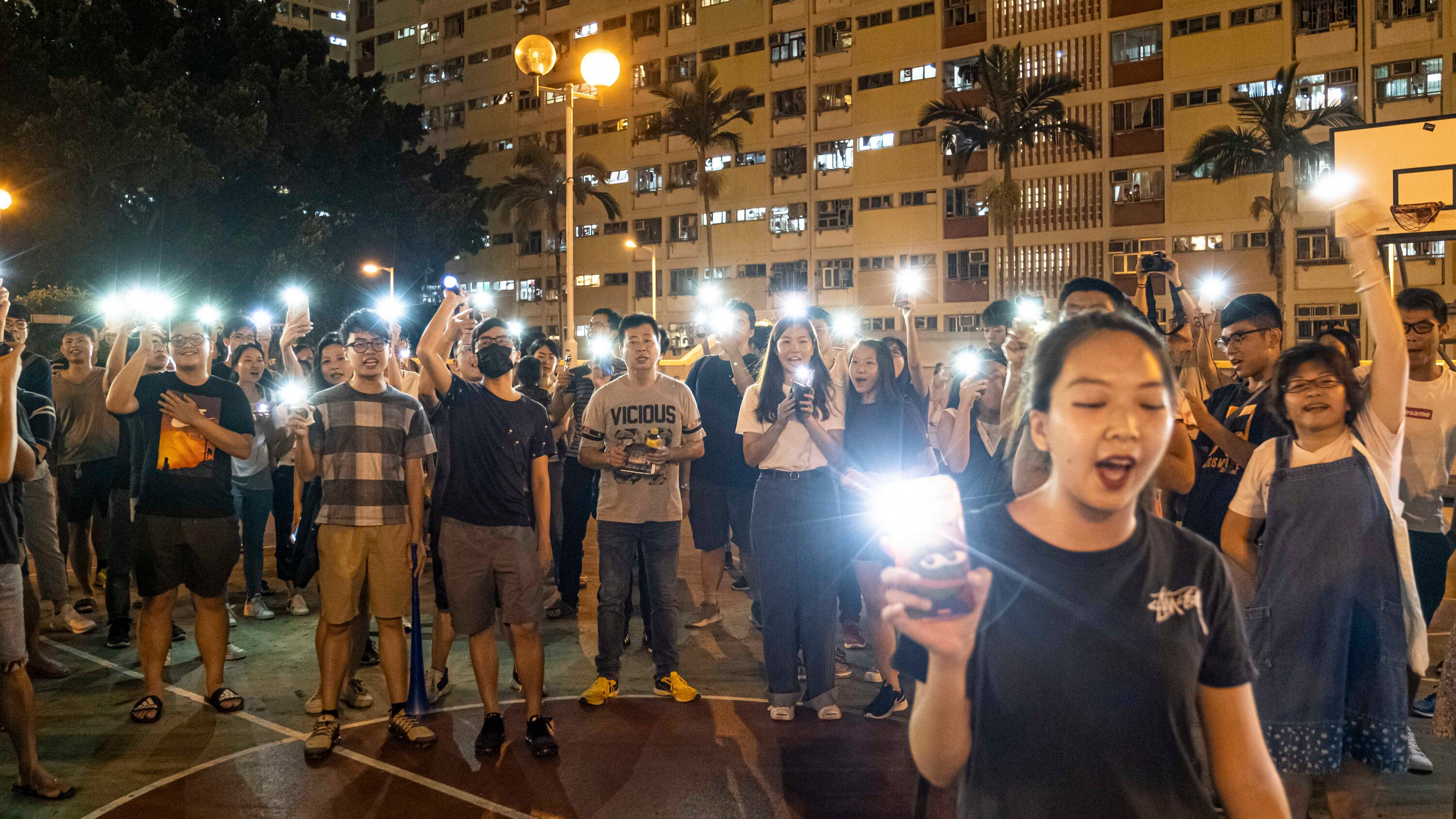India's Supreme Court has granted bail to a prominent opposition leader of Delhi's governing Aam Aadmi Party (AAP) in a money laundering case. The top court said Manish Sisodia's prolonged incarceration had “violated his right to a speedy trial”.
Mr Sisodia has been in jail for more than 17 months in a case related to alleged irregularities in a now-scrapped liquor policy in the city. He denies the corruption allegations and had challenged his arrest in court.
The judges added that since Mr Sisodia's trial was unlikely to be completed soon, it would be a violation of his rights to keep him imprisoned indefinitely.
“Bail cannot be denied as a matter of punishment... It is high time the courts realise that bail is a rule and jail is an exception,” they said.
One of India's most high-profile politicians, Mr Sisodia is second-in-command in the AAP.
He was arrested by India's top investigative agency - the Central Bureau of Investigation (CBI) - on 26 February last year. He was later charged by India's financial crimes agency - the Enforcement Directorate (ED) - in the same case.
Mr Sisodia challenged his arrest in the Supreme Court after the Delhi high court and a trial court rejected his bail plea three times.
Authorities have accused several AAP leaders, including Delhi's Chief Minister Arvind Kejriwal, of favouring liquor barons in exchange for kickbacks. The AAP denies any wrongdoing and says the cases against its leaders are politically motivated.
Mr Kejriwal was arrested on 21 March, days after the dates for the general election in India were announced. He has called his arrest “illegal” and has refused to give up office. His party says he is running the Delhi government from prison.
Another AAP leader, Sanjay Singh, was arrested in October - the court granted him bail in April .
In recent years, other opposition parties have also accused the governing Bharatiya Janata Party (BJP) of using federal law enforcement agencies to pick on on its opponents, a charge the BJP denies.
Sisodia's Release: A Triumph for the AAP?
The Supreme Court's decision to grant bail to Manish Sisodia has been met with jubilation by the Aam Aadmi Party (AAP), which has hailed it as a victory for truth and justice. Sisodia, a former Delhi Deputy Chief Minister, was arrested in February 2023, accused of corruption in the city's liquor policy. His release from jail after 17 months has sparked celebrations among AAP supporters, who see it as a blow to the BJP government's alleged attempts to suppress the opposition.
The AAP has repeatedly maintained that the charges against Sisodia are politically motivated, a claim echoed by many opposition leaders. The party's leaders, including Delhi Chief Minister Arvind Kejriwal, who himself is facing similar charges, have argued that the BJP is using federal agencies like the CBI and ED to target its political opponents. Sisodia's release, they say, is proof that these charges are without merit.
The court's order granting bail, however, was not based on the merits of the case but on the fact that Sisodia's right to a speedy trial had been violated. The court highlighted the long delay in the trial and the lack of progress made by the investigating agencies. This, the court argued, made it unfair to keep Sisodia in custody any longer.
Implications for the Delhi Government and the AAP
The release of Manish Sisodia comes at a crucial time for the Delhi government and the AAP. The party is currently facing a number of challenges, including the upcoming assembly elections in Delhi and Haryana. Sisodia's return is likely to provide a much-needed boost to the party's morale and campaign efforts. He is known for his work in the education sector, and his return to active politics is likely to be welcomed by the AAP's supporters and voters.
The BJP, however, has criticized the Supreme Court's decision, arguing that it is a sign of the judiciary's weakness in the face of political pressure. The party has also accused the AAP of trying to use the court's decision to score political points. The BJP's reaction is likely to further escalate the political tension between the two parties, as they prepare for the upcoming elections.
The Supreme Court's decision to grant bail to Manish Sisodia is a significant development in Indian politics. It is a reminder of the importance of a fair and speedy trial and highlights the challenges faced by opposition parties in the country. The decision is likely to have a significant impact on the upcoming elections in Delhi and Haryana, and could influence the political discourse in the country in the coming months.
A New Chapter Begins
The release of Manish Sisodia marks a significant turn in the political saga of the AAP. While the legal battle continues, his return to the political arena promises to inject new energy into the party's campaign efforts. His release, however, raises questions about the efficacy of the judiciary in ensuring speedy trials and the role of political pressure in influencing legal decisions. The upcoming elections in Delhi and Haryana will be a litmus test for the AAP's ability to capitalize on this recent victory and present a compelling alternative to the ruling BJP. The saga of Manish Sisodia's arrest and release is a reminder of the complexities of India's political landscape and the challenges faced by opposition parties in the country. As the AAP gears up for the upcoming elections, the impact of Sisodia's return and the ongoing legal battle will be closely watched by political analysts and the public alike. The coming months will be crucial in determining the future of the AAP and its ability to challenge the BJP's dominance in Indian politics.


















